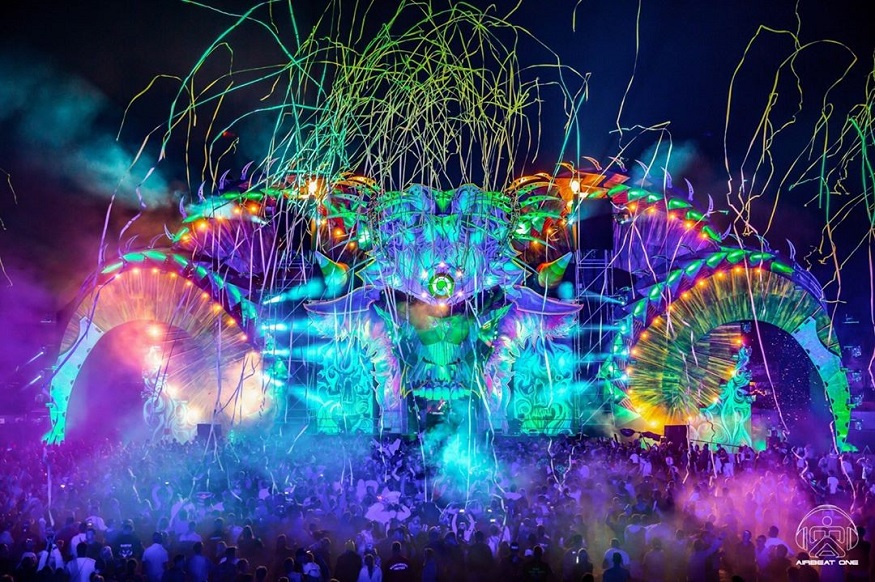Top 5 Reasons Electronic Dance Music Industry Will Not Fall Due to Covid-19
With the onset of COVID-19 pandemic, there was no doubt that the electronic dance music would be hit. The economic impact could not be immediately fathomed though. However, not for long.
By April 20, 2020, around 350 electronic festivals had been called off or postponed. Worldwide, 8.9 million fans were locked out of attending festivals.
With these cancellations and postponements, estimates projected that the genre and its associated stakeholders would stand to lose an estimated 75 percent of their income, which is equivalent to about 3.3 billion dollars.
DJs and artist earnings dropped from 1.1 billion in 2019 to 400 million in 2020 due to the pandemic, a drop of 61 percent.
Might this be the end of the Electronic Music Industry?
Well, not exactly.
With throttled income sources, a pandemic that was fast spreading, partial to complete lockdown and no end in sight, main players had to diversify their income sources. Might diversity have been the magic bullet? Read on to get the gist as to; why Electronic Music is here to stay and how EDM artists are coping during covid 19.
Embracing of Virtual Reality
With the pandemic necessitating closure of clubs and festivals, Djs and organizers have had to devise ways to stay connected with their fans through VR.
In the virtual venue, with the aid of a sensor suit and motion-capture camera, the movements of a DJ are copied to an avatar.
To live the experience, people wear a VR headset such as Oculus.
This next to real imaginary feeling allows fans to shake a leg on the dance floor all night long or to explore a forest full of sound reacting objects
These online performances might not be the same, but they are injecting the much-needed revenue into the industry that is among the worst hit by the pandemic.
Livestreams with payment or tip options
In April and May, a total of 49 million people followed David Guetta’s United At Home concerts, which were live streamed in New York and Miami minus a physical audience.
This was one among the over 7000 live streams that have been held or scheduled since the onset of the pandemic.
Not to be left behind, The Youtube channel Proximity coupled with LA Event Company Brownies and Lemonade set up the first live streamed festival in the pandemic period.
Other festivals followed suit, including Tomorrowland who held Tomorrowland Around the World.
Marketing and Income from Video Games
With over 75 built stages, over 900 artists scheduled to grace the musical event, Rave Family Block Fest (was to be held within Minecraft,) was a legendary event that would surely make it to annals of history.
However, following some health and technical concerns from the artists and fans, the mid-July festival had to be postponed indefinitely.
EDM is not new to the gaming world. Electronic music has often been used in digital worlds, thus many gamers are fans of the genre.
DJs have also been working with gaming companies to come up with their own games such as deadmau5 and his games Absolut deadmau5 and Ghosts’n DJs. Fortnite has held in-game concerts featuring Major Lazer, Marshmello, and Dillon Francis.
Partnering with eSports
Gaming is seven times larger than the whole music industry. DJs collaborating with professional eSports players is therefore a wise move. Tapping into this model has helped sustain the industry rather than depend on live performances or virtual ones only.
Streaming
Streaming at first, fell when lockdowns were introduced in the USA and Europe, with Electronic Dance receiving the largest blow.
However, there was a subsequent rebound and an increase in subscriptions which saw a whopping 100 million additional revenue collected in 2020.
Such rebounds and re-alignment are believed to reverse the dwindling fortunes, sustain and even propel overall growth in the industry.
Conclusion
The pandemic has no doubt impacted the Electronic Dance Music industry, but all hope is not lost. For artists will still be able to virtually interact with their fans, while making money. The above strategies are among the integral strategies that will ensure the electronic music, though down, will not be out today, tomorrow or any other day in the next foreseeable future.
Sources:
Business Insider Africa Billboard World Economic Forum

